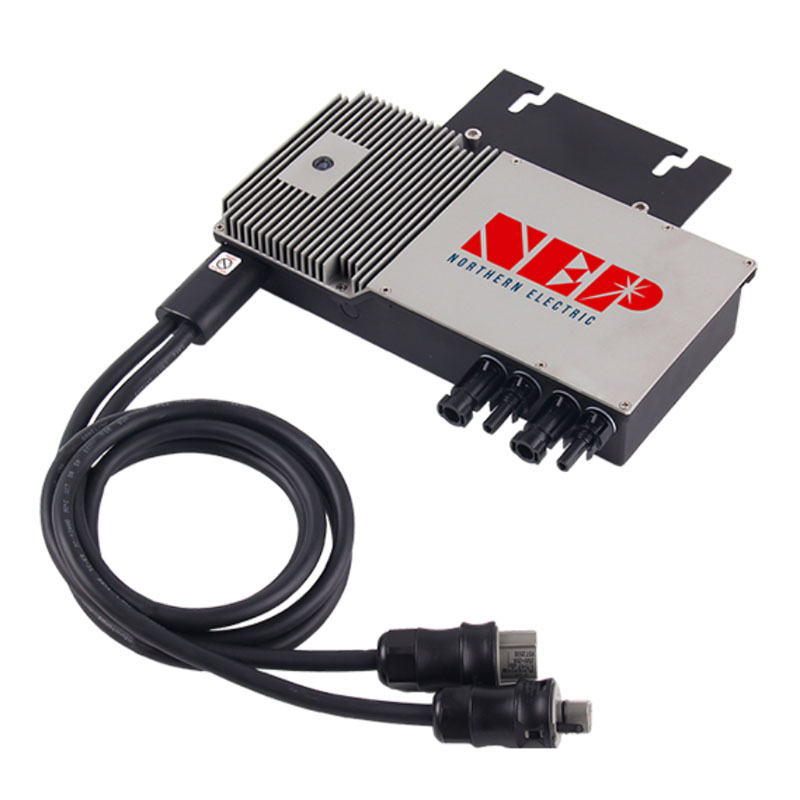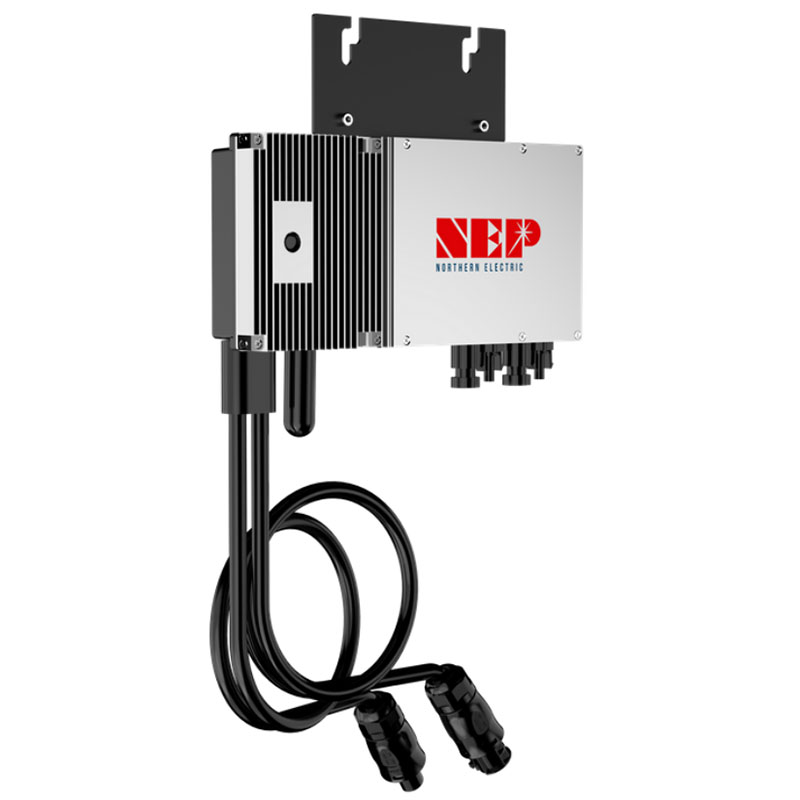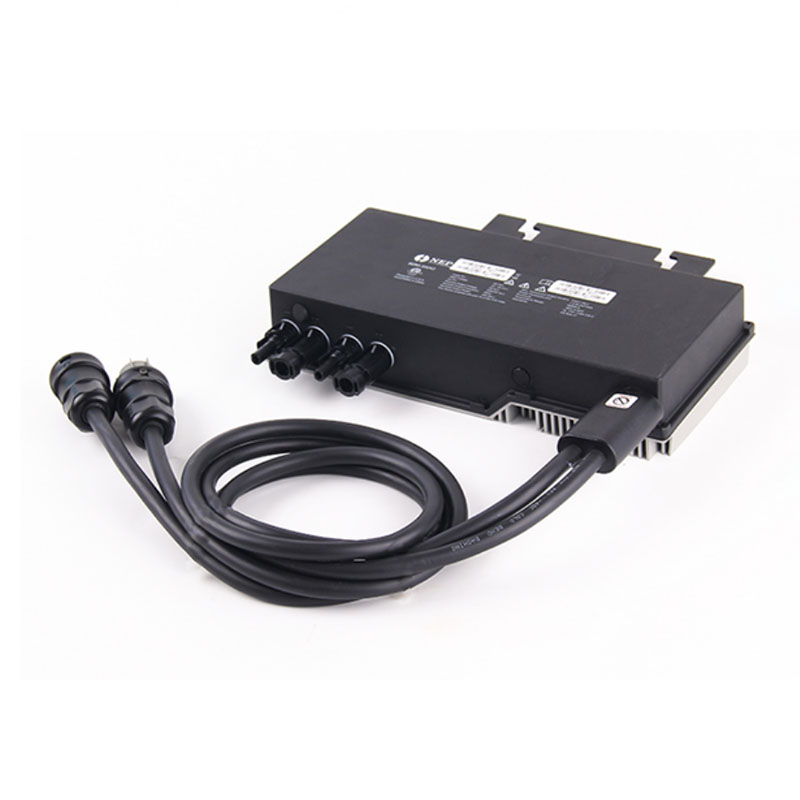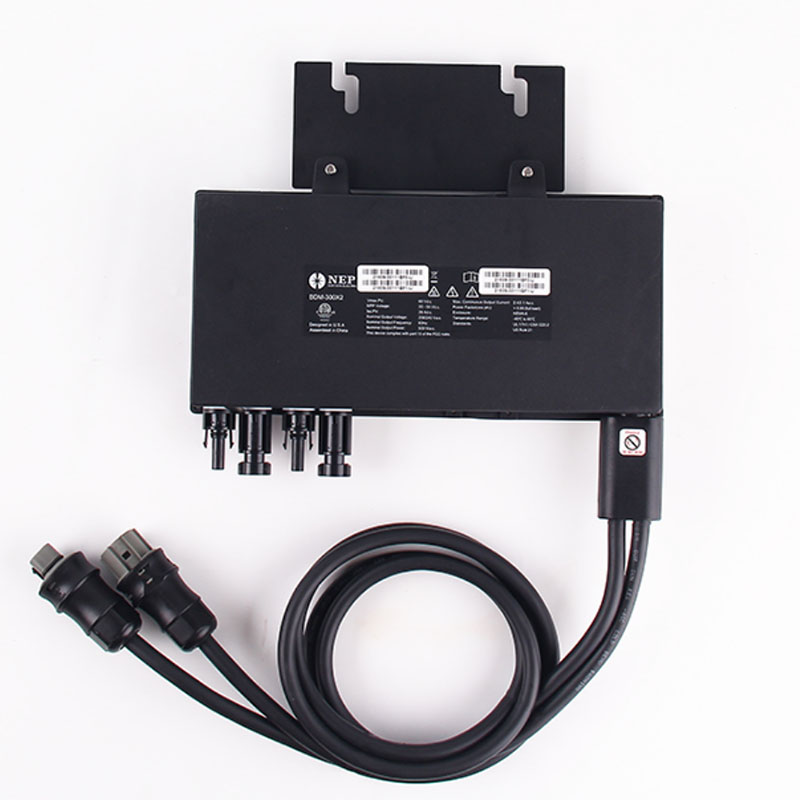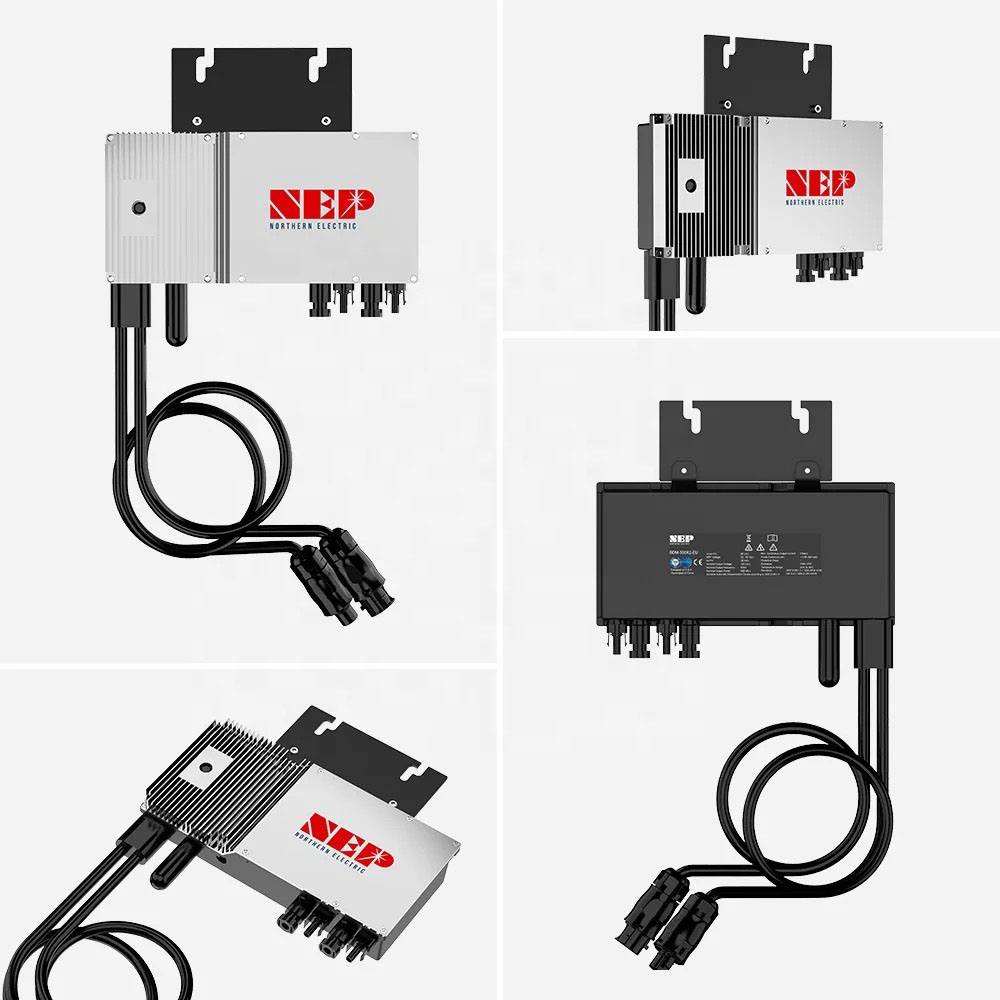NEP Micro Inverter 600w BDM 600 Grid Tied Solar Inverter With Wifi
Product Description
The BDM 600 solar microinverter is designed to support up to two 450W high power panels. Additionally, it features integrated ground (IG) that eliminates the need for grounding conductor (GEC) on the DC side. The unique design of the BDM 600 model, in addition to being functional, it is unique and original, available only with NEP.
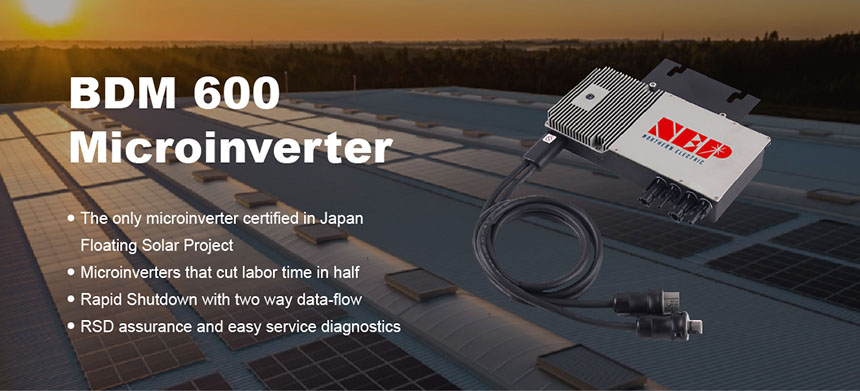
Dimensions: 10.91" * 5.20" * 1.97"
Weight: 6.4 Ibs
| Model | BDM 600 |
| Input DC | |
| Recommended Max PV Power (Wp) | 450 x 2 |
| Recommended Max DC Open Circuit Voltage (Vdc) | 60 |
| Max DC Input Current (Adc) | 14 x 2 |
| MPPT Tracking Accuracy | >99.5% |
| MPPT Tracking Range (Vdc) | 22-55 |
| Isc PV (absolute maximum) (Adc) | 18 x 2 |
| Maximum Inverter Backfeed Current to the Array(Adc) | 0 |
| Output AC | |
| Peak AC Output Power (Wp) | 550 |
| Rated AC Output Power (Wp) | 500 |
| Nominal Power Grid Voltage (Vac) | 240 / 208 / 230 |
| Allowable Power Grid Voltage (Vac) | 211V-264* / 183V-229* / configurable* |
| Allowable Power Grid Frequency (Hz) | 59.3 a 60.5* / configurable* |
| THD | <3% (at rated power) |
| Power Factor (cos phi, fixed) | >0.99 (at rated power) |
| Rated Output Current (Aac) | 2 / 2.40 / 2.17 |
| Current (inrush)(Peak and Duration) | 24A, 15us |
| Nominal Frequency (Hz) | 60 / 50 |
| Maximum Output Fault Current (Aac) | 4.4A peak |
| Maximum Output Overcurrent Protection (Aac) | 10 |
| Maximum Number of Units Per Branch (20A)(All NEC adjustment factors have been considered) | 7 / 6 / 7 |
| Syistem efficiency | |
| Weighted Averaged Efficiency (CEC) | 95.50% |
| Night Time Tare Loss (Wp) | 0.11 |
| Protection functions | |
| Over/Under Voltage Protection | Yes |
| Over/Under Frequency Protection | Yes |
| Anti-Islanding Protection | Yes |
| Over Current Protection | Yes |
| Reverse DC Polarity Protection | Yes |
| Overload Protection | Yes |
| Protection Degree | NEMA-6 / IP-66 / IP-67 |
| Ambient Temperature | -40°F to +149°F (-40°C to +65°C) |
| Operating Temperature | -40°F to +185°F (-40°C to +85°C) |
| Display | LED LIGHT |
| Comunications | Power Line |
| Dimension (W-H-D) | 0.91" * 5.20" * 1.97" |
| Weight | 6.4 Ibs |
| Environment Category | Indoor and outdoor |
| Wet Location | Suitable |
| Pollution Degree | PD 3 |
| Overvoltage Category | II(PV), III (AC MAINS) |
| Product Safety Compliance | UL 1741 CSA C22.2 No. 107.1 IEC/EN 62109-1 IEC/EN 62109-2 UL 1741 CSA C22.2 No. 107.1 IEC/EN 62109-1 IEC/EN 62109-2 |
| Grid Code Compliance* (Refer to the label for the detailed grid code comliance) | IEEE 1547 VDE-AR-N 4105* VDE V 0126-1-1/A1 G83/2, CEI 021 AS 4777.2 & AS 4777.3, EN50438 |

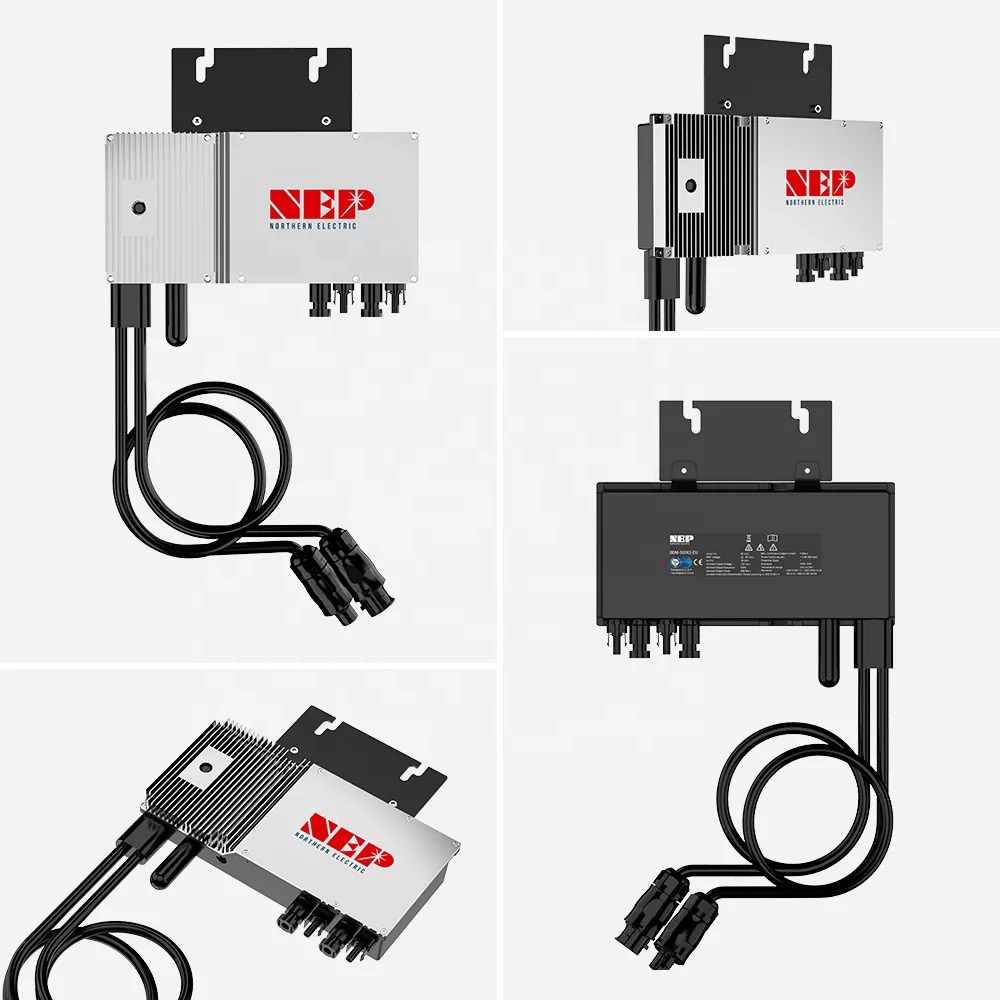
Inspection service from the third party is optional
System Architechture
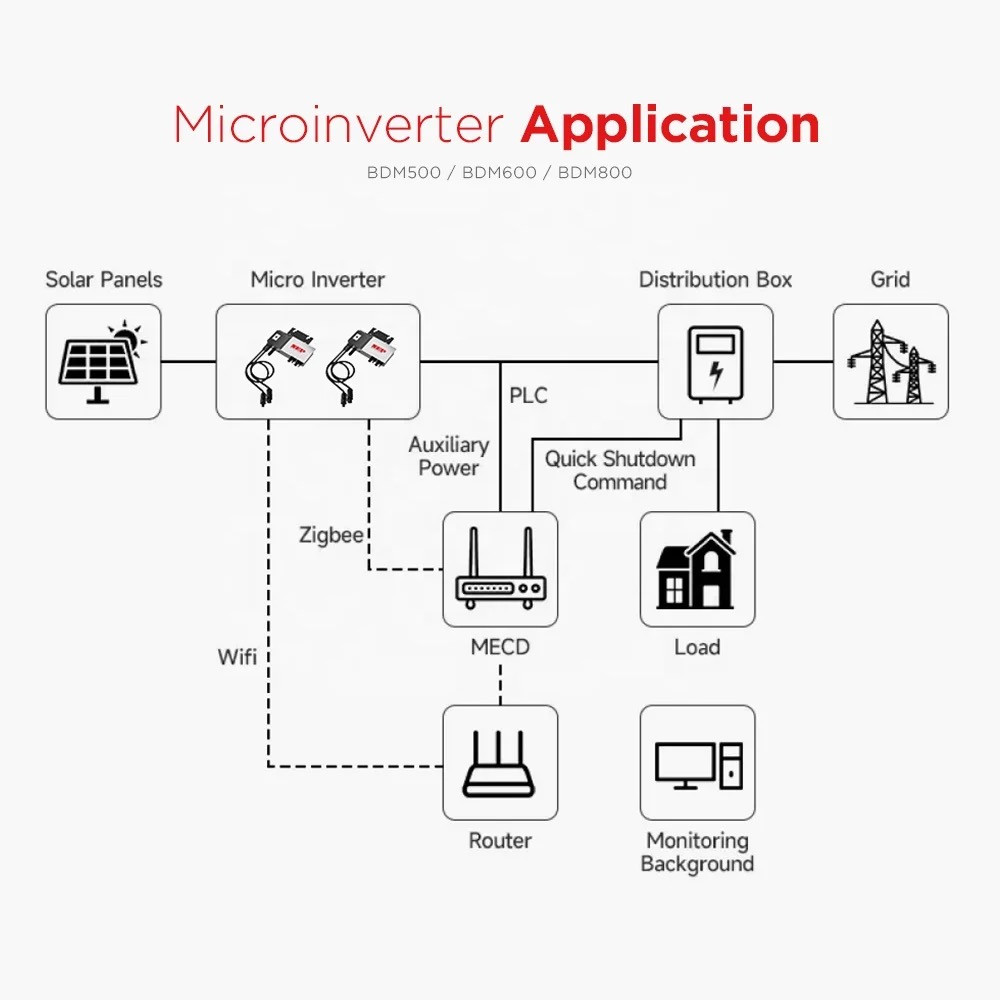
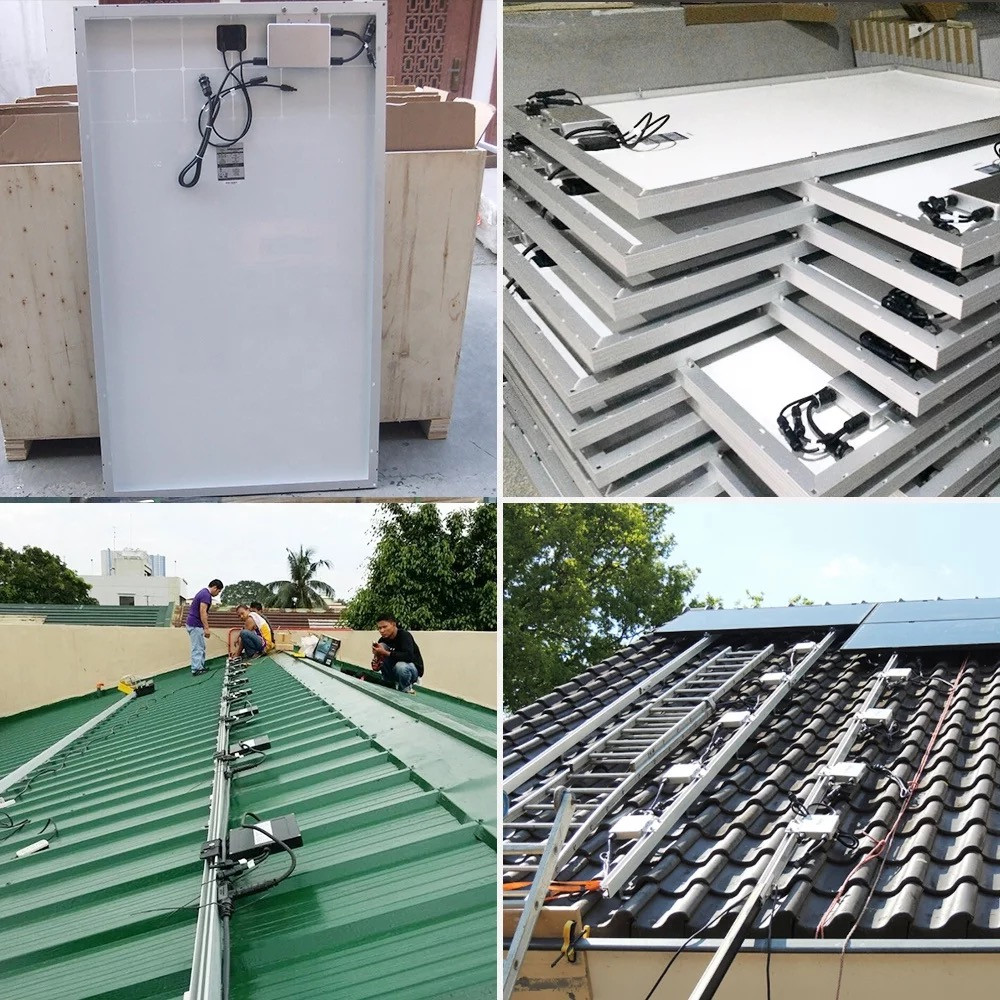
Product Packaging & Shipping
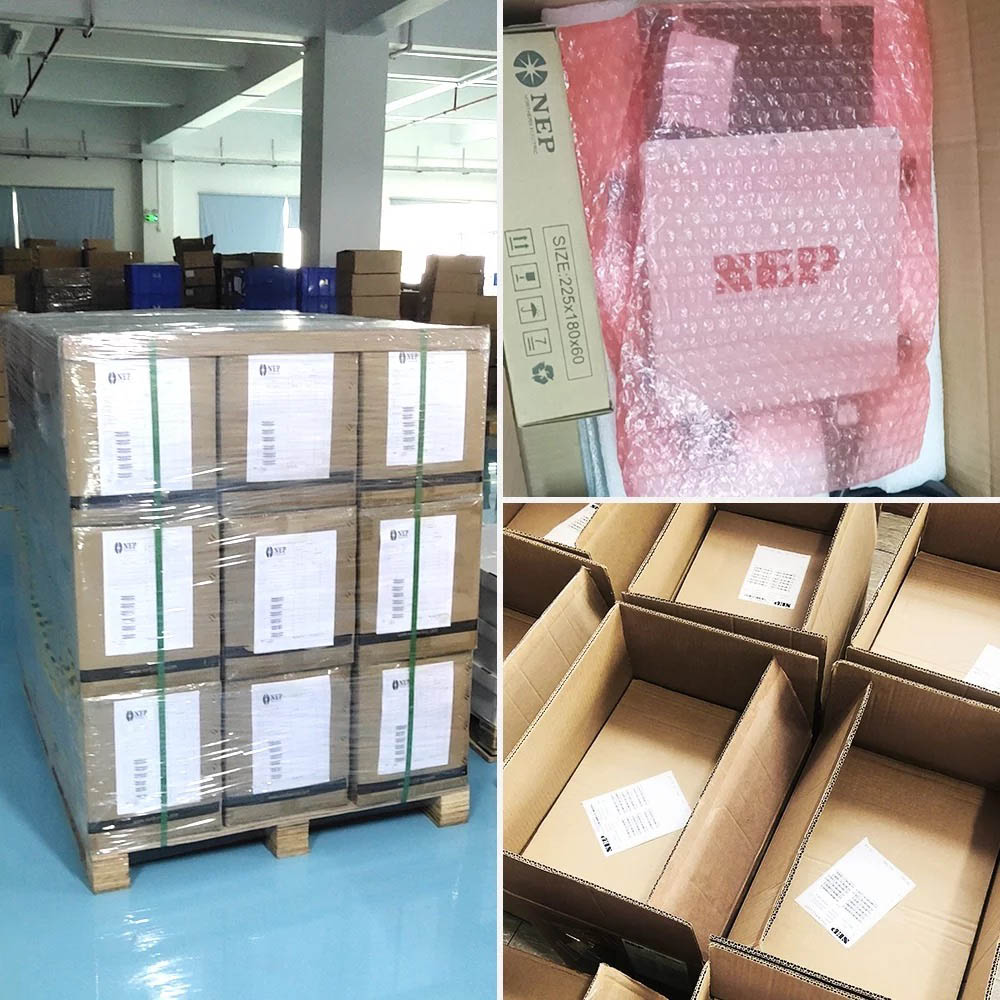
This is the default packaging method, you can customize the packaging according to your requirements, and the transportation methods include air, sea, express, railway, etc.
Cases from customers
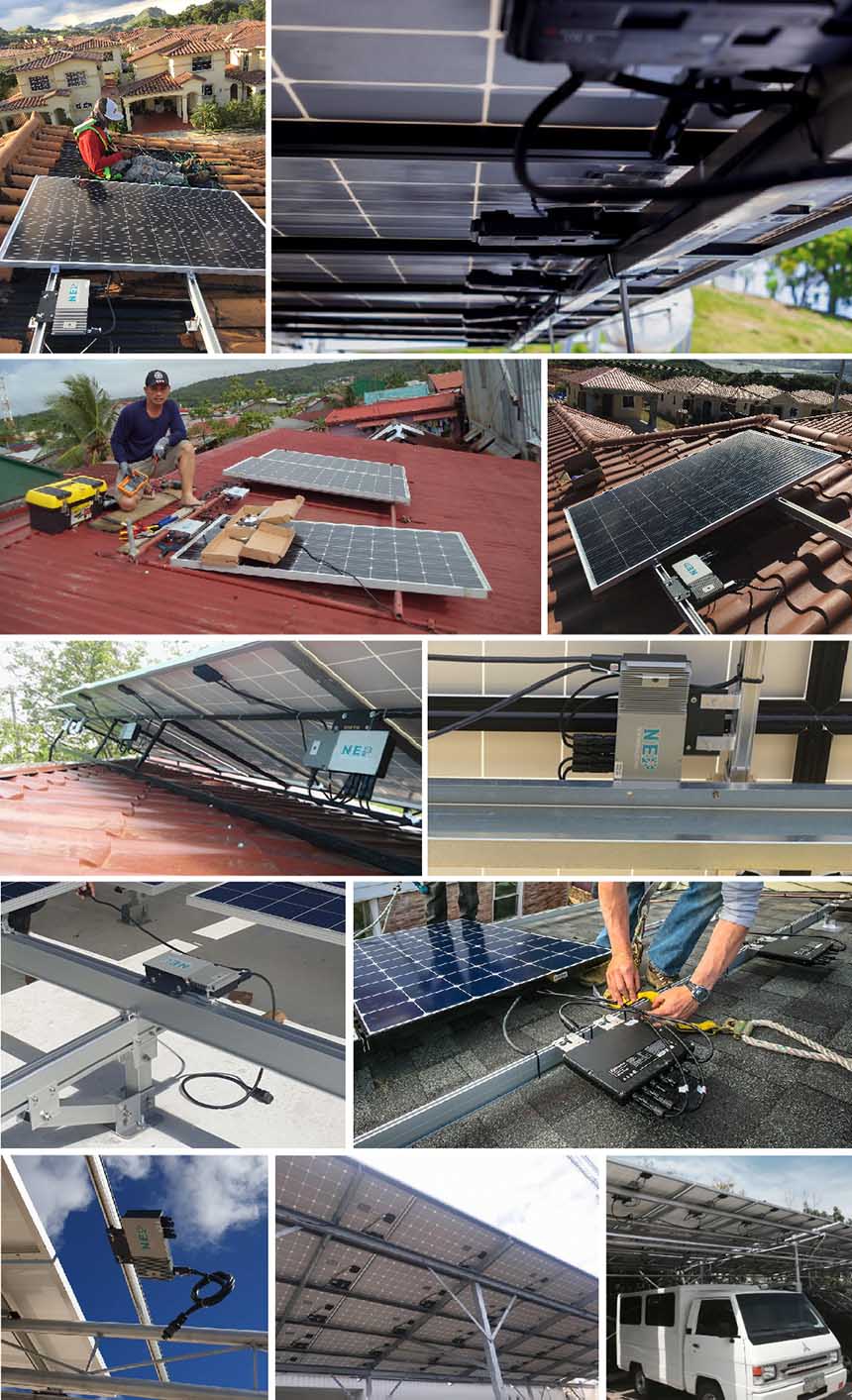
Advantages of Microinverters
1. The PV panels of the micro-inverter have a strong ability to resist local shadows, so each PV panel can work near the maximum power point.
2. The inverter is integrated with PV modules, the expansion of the system is convenient and simple, and the modularization, hot-swapping and plug-and-play of the design can also be realized.
3. Photovoltaic micro-inverters can be placed in various angles and directions. It is a distributed installation that is conveniently configured and can make full use of the space.
4. It can increase the reliability of the system from 5 years to 20 years. The high reliability of the system is mainly through optimizing heat dissipation to remove the fan, and a photovoltaic panel damage does not affect other strings.
5. Information such as the output power of photovoltaic panels is collected through the AC bus of the power grid. Applying power line carrier communication to this system will benefit the entire system. The monitoring of the system is very convenient, and at the same time, it can save communication lines, does not require additional communication lines, and will not cause any burden on the system connection. The structure of has also been greatly simplified.
6. The photovoltaic panels in the traditional photovoltaic system will affect the efficiency due to the installation angle and partial shadow, and there will be defects such as power mismatch.
The inverter can adapt to the continuous changes of the external environment, which can avoid these problems.
7. The conversion efficiency of the photovoltaic panel in the photovoltaic micro-inverter will not be affected by the shadow of a single photovoltaic panel or the damage of a single micro-inverter, impact, which can also improve the photoelectric conversion efficiency of the entire system.

